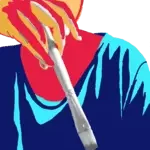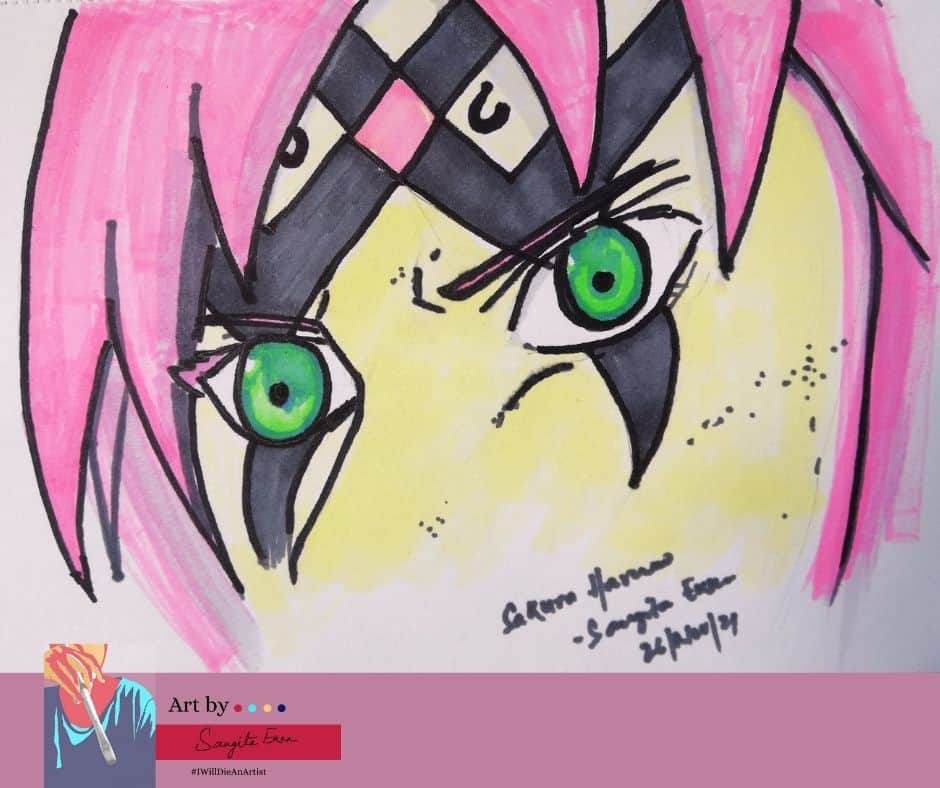My first encounter with the idea of sex wasn’t with the word itself or with any awkward question to a badly timed television ad, it was the with word – “heredity”.
As a pre-teen, I asked my parents what it meant. Apart from the crude “parents to children” explanation, I also got an example – “like we fat, you fat, your kid fat”.
I wasn’t much offended by the future probability of gaining few extra pounds, but by the grand assumption that someday I will have kids, like it was some kind of mathematical certainty waiting to happen.
I was irked, even when I didn’t fully understand why.
I was probably too young for “the birds and the bees talk” or in Indian context – “the kissing flowers of Bollywood”, but the number of times TV channels changed when two people were close, and the straight faces with which my family operated the remote control then, all of it had made me curious enough.
I never voiced my question on that subject, just observed. Few songs were taboo. Some channels were taboo. A newspaper subscription was cancelled after a few days of me reading “Kya sone se pahle zaruri hai sex?” (Is it necessary to have sex before sleeping?) out loud from one of its supplements.
My secret observations and questioning continued for a few good years to finally have answers from class 10th science textbook of CBSE board. The dots had connected, everything fell into place; the mystery had unlocked, and with it my curiosity around sex ended.
That’s the longest I have ever been interested in sex, purely from the perspective of understanding it. It never occurred to me that at some point in time I would be expected to experience it.
The teenage years brought with itself – growth spurt, an annoyance called periods, and an interest in boys. It also brought an exploration of my own body, the discovery of pleasures with self, an internet connection, and the visual discovery of categories of a subject I had already satiated my curiosity about. I just had to see it for myself.
A decade from that phase till I turned 30 were confusion. Let me be clear, I wasn’t confused on whom I was attracted towards. It’s men. The confusion arose from the set standards of how love and romance should look like, what it eventually leads to, and how I was undergoing multiple tiers of attraction and emotions for different men simultaneously.
I have found myself with intense romantic feelings for one man without any intent of indulging sexually at any given point in time. At the same time, I have also felt an intense sensual attraction and teeny-tiny sexual attraction towards another, but yet again, I had no desire to act on it. It’s just the presence of love along with the absence of desire.
In an ideal parallel world, I am probably having two separate non-sexual relationships with those two men at once, both of them being aware and consented while my freedom, autonomy and personal space remains unchanged.
I wish I had known all of this earlier. How do you communicate all of this to the other party when you are not sure what’s going on with you? Whom do you ask, and what exactly do you ask?
Books and movies fell short for me to find a relatability. Now that I know that a spectrum in LGBTQIAPK exists and I click with a part of it, I think that the constant portrayal of two heterosexual people finding each other, loving only each other in all possible sense of the word, willing to have a family and so on, is too narrow a category to fit the world population.
To be fair to this community, I didn’t face any serious issues with my sexuality through teenage and adulthood. I had my space and time to explore my body, thoughts, and feelings. I didn’t face any kind of oppression or forceful acts, and I have eventually been open about opinions even if it makes a set of people uncomfortable.
It wouldn’t have made any difference if these details about a part of my private life would have never made it in the public space. But I think, that by having a voice, having the ability to succinctly communicate, and having a platform to inform and educate, the voicing becomes necessary.
I deeply believe that humans care about other humans. When they don’t is when they are face to face with unfamiliarity. I hope that my story is aiding in bridging that gap on the grounds of sexuality.
The variety in my sense of attraction and sexuality is natural and yet it’s almost like declaring that I am a woman because of certain characteristics which are “not-men”. (Correct me if there’s anything ignorant I wrote on gender.)
So, why talk about the obvious?
I am writing to reassert David Jay – the founder of The Asexual Visibility and Education Network (AVEN) that sex is not a human need, connection is, that there is a colourful spectrum in the definition of attraction and intimacy.
I am also writing this to the society as a whole, particularly Indian, where sex is a taboo subject and marriage which comes with silent preconditions of having sex with the opposite gender and raising children. It is harsh and oppressive on the LGBTQIAPK or any person in general for that matter. Take people’s consent on marriage like one needs to take consent before sex.
And finally, I assert that any point in the LGBTQIAPK spectrum is not an anomaly or excuse, it’s normal. It’s not some kind of disease – physical, mental, emotional, or sexual which needs to be cured. It is an orientation and simply demands to be accepted even if a shred of it doesn’t make sense to the otherwise “normal” people.
On that note, I present to you my colour from the LGBTQ+ spectrum – I am a heteroromantic, grey-asexual woman with solo polyamorous tendencies. My sense of attraction is sensual, romantic, and aesthetic.
What that means is my romantic attraction is only for the opposite gender with no or ignorable desire of getting physical. The feeling is rare, and I am capable of feeling that for different men simultaneously. When I say someone (man or woman) is attractive, with words like cute or beautiful, I simple mean that on an aesthetic level, nothing else. I have often, ignorantly clubbed it all under “sexy”.

I also identify myself as sapiosexual and though it may stand in contrast to asexuality, remember that grey ACEs are not completely asexual. It’s like sharing a wall with your neighbour. You don’t belong on the other side, but you have something in common. Good communication is a way of connection for me and plays a role on the grey part.
I also know that a set of people will also say that how can one decide on something what one hasn’t tried yet. They can very well check that off. Tried and tested to the extent I was willing, and hence unwilling to go back. I am not made for sex.
When I passively started questioning my sexuality, I found solo polyamory. Though it defined a part of me very well, I knew it wasn’t the complete picture. Last 4-5 years have been that, passively questioning but clueless on what to look.
Then a few months back I found a Ted Talk by Danika Vrtar, and through her, the existence of AVEN and eventually David Jay. It all just clicked and made complete sense.
I so wish I had known all of this earlier when I was going through the storm of confusing emotions. I would have communicated so much better to the men whom I allowed in my emotional territory.
With all of that said, I hope it makes people more tolerant if not straight accepting. One can always rid oneself of ignorance.
When I decided to write this, I struggled with organizing my thoughts. I wanted to make it public in early June and had no idea about pride month. Seeing the internet go colourful, I gave myself a deadline.
ACEs wear a symbolic black ring on the middle finger of their right hands. What a way to say that they don’t give a f*ck!
IF YOU LIKE MY WORK, YOU CAN ALSO SUPPORT ME ON PATREON!


Nice article .keep doing great!
Thank you. 🙂